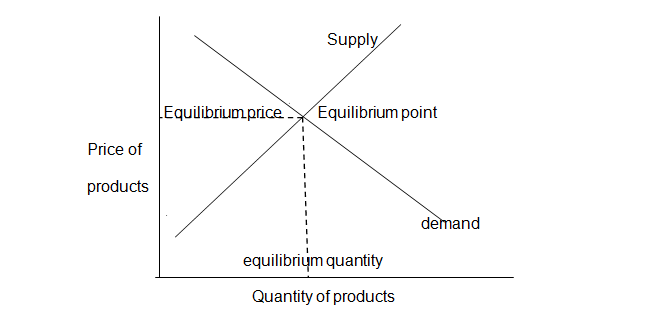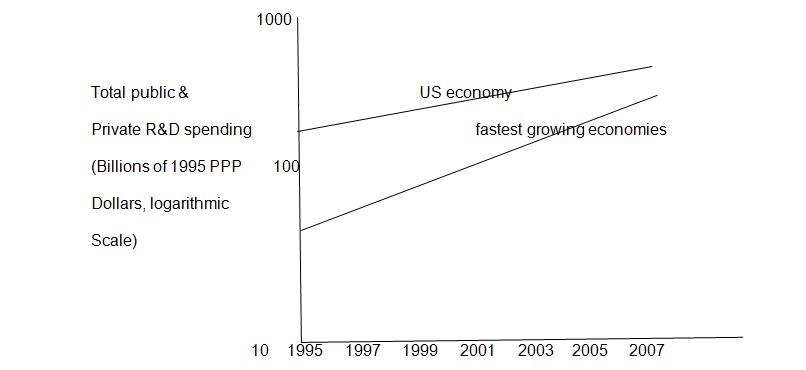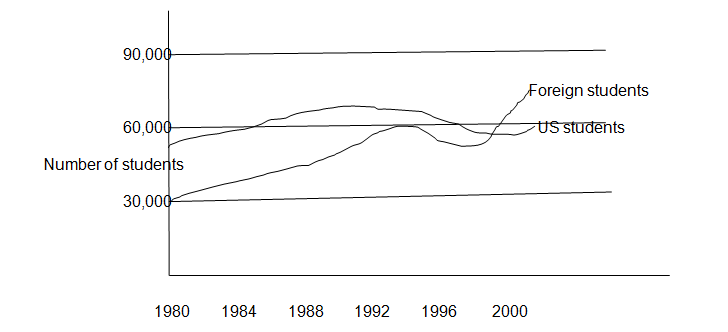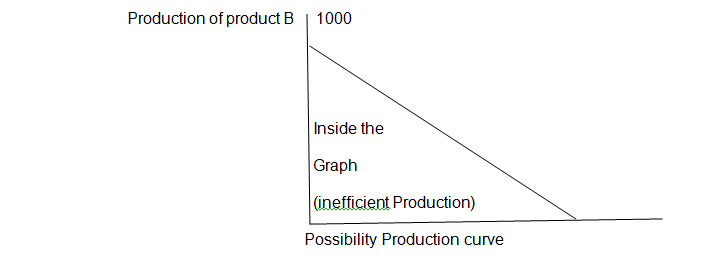Introduction
The U.S. economy remains the largest economy in the world despite the fast emerging economies such as China, Japan and India among others. These emerging economies threaten the U.S. economy with regard to losing of its competitive advantage. However, in 2010, the GDP of U.S. was estimated to be at $ 14.7 trillion.
This estimate clearly positions U.S. economy at the frontline. The U.S. economy is also widely known for maintaining high output per capita that enables it to rank at sixth position worldwide. Additionally, the U.S. ranks among the top well recognized countries in trade and commerce.
The supremacy of U.S. economy might be strongly drawn from its ability to maintain stable gross domestic product, high levels of research, maintenance of low unemployment levels and high levels of capital investments at the national and international level.
To understand the economy of U.S. more clearly it will be somewhat prudent to subdivide the economy into subsections for easy comprehension of the economical units. This will further enable one to appreciate the economy in general and more significantly to conquer with suggestions provided to improve the economy as well as coming up with personal opinion.
Income and wealth
The report released in the beginning of 2008 indicated that the pretax median household income was at the average $50,000 for the year 2007. The median household income ranged from one region to another. For instance, in Maryland it was at $68,000 while for Mississippi was at $36,000.
There was an increase of income from 2006 to year 2007 for employees who worked full time. Similar increase was also notable in women. The rising economy was mostly credited to the increasing income from the taxpayers. However, the number of employment dropped significantly in the year 2008 after the nation faced economic crisis.
Retailing
This is the major sector of the U.S. economy. The common retailing enterprises in the U.S. include Montgomery, Target, Burger King and Wal-Mart (Landefeld 40).
These firms are mostly concerned with producing consumer goods. These firms frequently raise prices of their products due to the ever-increasing energy and labor costs. This consequently affects the economy and sometimes the government is forced to intervene the operations of such businesses to safeguard consumers.
Agriculture
The large fertile land and technologically improved methods of crops cultivation have enabled the U.S. economy to produce about a half of the total grains consumed worldwide. The products produced are corn, wheat, cotton, fruits, dairy products, fish, vegetables and poultry among others.
Additionally, U.S. is among the few countries that enjoys subsidies from the government especially in the agricultural sector. This has consequently resulted to more production of agricultural products (Landefeld and Barbara 163).
Finance
The U.S. posses a number of great stock markets in the world. New York stock Exchange is the largest stock exchange with a capitalization of US$10.1 trillion for the companies listed over there.
Another great stock exchange known as NASDAQ is third in the world after Japan’s Tokyo Stock Exchange though it is reported to have a higher trade volume per hour as compared to JTSE. About 3,800 companies have listed their shares with NASDAQ stock exchange.
Manufacturing
A report produced in 2008 indicates that the manufacturing output of US economy was larger as compared to that of China, India and Brazil when combined.
The industrial output for the year 2007 was at $2.69 trillion. Among the industries that contributed to this output include petroleum, steel, automobiles, telecommunication, chemicals, electronics, consumer goods, mining , lumber, agricultural manufacturers and aerospace.
In fact, the U.S. is known for being the leading country in manufacturing airplanes. Companies that engage in activities of producing airplanes include Boeing, Lockheed, General Dynamics and Cessna. In spite of the great stake, they hold at the global level, recently US economy faced job losses in the industrial sector.
Energy
The U.S. is the largest economy well known for consuming high amount of energy. Most of the energy consumed is attained from fossil fuels.
On average, 23% of total energy comes from coal, 24% from natural gas, 7.4% from nuclear power, and 6.6% from the renewable hydroelectric energy while 40% of the energy comes from petroleum.
In general, transportation sector has been recognized to be largest sector consuming highest level of energy averaging 69% of the total oil used in U.S. Transportation sector mostly consume the oil energy (Landefeld and Barbara 33).
International trade
The U.S. is the largest nation that participates in the international trade. It imports more products than any other country in the world. It is also renowned to be among the few nations that outsource its’ services. This has led their currency to be in high circulation across the world.
More importantly, the US currency has always been used in the international markets as a standard unit of currency for many commodities such as petroleum. Most strong economies such as China hold U.S. currency reserves for investment and international trade purposes.
However, U.S. is criticized for having imbalanced international trade as imports are reported to exceed exports. For instance, the imports for the 2008 were at $2.5 trillion while exports were at $1.8 trillion.
Recently, the U.S. economy is said to operate with high public deficit in which most strong economies are threatening to stop holding U.S. dollar reserves. The economic crisis of 2008 had somewhat reduced the trading volume of the U.S. economy as most big companies were incapacitated. In particular, the import volume went down.
Government intervention in the economy
The government of the U.S. intervene the market in a number of ways. Some direct involvement includes set of rules that guides the market with a view of controlling market prices.
Among these rules, include those set for the banking system such as the minimum depository requirement by the Federal Reserve as for all commercial banks. These rules focus on full disclosure for prudent decision making by investors and employees, fraud prevention and more importantly upholding lending to the lower-income section.
The government also controls the private sector in a bid to push for social goals. For instance, the U.S. government established the Occupational Safety and Health Administration that advocates safe working environment.
Other policies established by the government include the U.S. Environmental Protection Agency and the Food and Drug Administration. However, these regulations were seen to make expensive the operation of most business (Barrett 27). These expenses were incurred in establishing labor, consumer and environmental rules.
Taxation and government spending
Taxation is levied at various levels in the U.S. economy. Majorly, federal government, state government and local government charge the tax. Federal government, state government and local government often collect an average of 40% of the consumers’ income. Taxation forms major part of income for the U.S. economy.
The U.S. government expends its finances in several direct services. These services includes provision of national defense, supporting research that leads to innovation of products at the market and running programs that help employees improve their skills. The government is also concerned with providing infrastructure such as road construction. Recently, the government increased its spending in the health sector.

The U.S. has been having a kind of economy in which expenses exceed revenues. This means the government frequently faces budget deficits that have increased the public debt. The government always gets additional finances from the issue of bonds at the domestic and international market.

Emergence of fastest growing economies
With this general knowledge of U.S. economy, we will be able to understand on what needs to be done to bring the economy back on track as it is losing its grips economically due to a number of factors.
In the recent global economy, countries such as China, India, France, Japan and other Asian and European countries have portrayed strong economic growth that is exerting pressure on the competitiveness of the U.S. economy.
In fact, China has astonished the world by being able to produce goods and services at the lowest cost. Today china ranks high in exporting its products across the world. U.S. on the contrary is losing its exports to China and Japan (Lieberman 76).
Importance of having a good market structure
A good analysis of the market would help the U.S. economy pick up again with strong spirit. It is recognized that the economy of a country depends on the output of the industries.
If an industry is producing more products then most probably an economy will experience low unemployment levels. This is because the industry will employ more workers. It may also increase employees’ salary due high profits because of massive production.
Consequently, there will be a general increase in the level of income. More income will mean more spending and more savings that will lower rate of borrowing from banks and financial institutions. Due to these factors, the level of investment would increase drastically.
Indeed, more consumption will induce some industries to produce more products. Other factors such as technology also need to be put into consideration when it comes to production.
Technology was once known to spawn most industries in the U.S. It has helped improve efficiency and effectiveness (Lieberman 36). Therefore, an individual should study the market close to make some informed decisions on how to improve the economy in general. In fact, this is what needed to be done to ensure U.S. does not face continued economic slowdown.
Typically, the U.S. economy is a mixed because only a small number of firms are publicly owned while the rest are privately owned. This market is free and only has little intervention from the government. Therefore, the forces of demand and supply of the products that falls under same industry commonly determine prices and quantity to be sold.
A graph showing price determination in perfect competitive market

This ensures there is competition at the market. Fair competition helps most companies to ponder over the most efficient methods of reducing cost of operations with the main reason of selling their products at lower cost as well as making reasonable profit.
The competition also forces the companies to produce high quality products that will automatically attract the customers. At the end, this kind of industry will become so efficient at the national level and eventually at the international level.
Therefore, it is wise for the government not to interfere with the market operations because it is responsible for monitoring and controlling business operations in the economy. It may only do so at extreme levels especially where few large companies are merging to form monopoly. This mostly happens in an oligopoly market where few firms exist.
It has been wise for the U.S. government to avoid large oil companies from both unfair acquisition and merging. It therefore means that perfect competitive market might be the best market that induces price reduction as well as quality improvement. This will later have a strong effect at the global market (Lieberman 115).
As far as US economy is concerned, the main question that remains unanswered is whether US market will be able to produce commodities at lower cost as compared to other markets elsewhere in the world. U.S. market particularly failed to produce products at affordable costs worldwide due to its high labor cost.
The strength of the U.S. dollar might also explain this scenario if viewed in the light of other currencies such as that of China.
High taxes imposed on U.S. goods hikes the level of U.S. products. Therefore, this means a number of steps need to be taken to safeguard US market and economy in general. Of course reducing cost of production is not easy because no worker will accept his wage to be slashed.
Research & Development investment with aim of improving technology
The next thing that will appear to be applicable at the optimization level is all about the technology. The U.S. was for long known as the leading country concerning technology.
Some of the industries that embrace innovation and technology include aerospace, computers and office machineries, communications equipment, medical field, precision and optical equipments. Technology ensures either products or services produced are of high quality. Moreover, since consumers are rationale they will tend to choose products that offer high quality.
Eventually, this will differentiate products of one economy from another. In the recent times, fastest growing economies such as India, Taiwan, Singapore and China among others are tending to overtake U.S. though they are still below. Indeed their pace in terms of economical performance is a threat to U.S. economy.
Their large part of economical performance is attributed to large investment in R&D. For instance, those fastest growing economies such as Ireland, Israel, China and Singapore increased their total investment in R&D by 140%. US had an increase of 34% that is a low percentage as compared to its competitors (Hicks 76).
Total R&D investments: Emerging Economies

Source: Organization for Economic Cooperation and Development, Main Science and Technology Indicators, May 2003.Compiled by the APS Office of Public Affairs
Fastest growing economies: china, Singapore, Ireland, Israel, Taiwan
In order to deal with issue of technology, emphasis has to be put on the R&D. low investment by US economy on the R&D predicts that most likely US will lose its competitiveness in the technology field to those upcoming nations.
One of the factors leading to this situation is the dropping number of students enrolling for sciences and engineering courses. Statistics indicates that percentage of those enrolling for S and E undergraduate courses declined by 10% as for U.S. citizens while it increased by 25% for foreign students.
Graduate institutions: Foreign students outnumber U.S. students

Source: National Science Foundation, Graduate Students and Post doctorates in Science and Engineering: Fall 2001, Tables 8-9. Compiled by the APS Office of Public Affairs.
Employment of technology in production methods
Being innovative and inventive in the market will merely depend on the level of technical skills available with the labor market. Today world has turn out to embrace technology with the aim of optimization. This means producing quality services and goods at the lowest cost achievable.
Therefore, U.S. has to embark on serious research and design to improve its production processes. However, how does technology help? For instance if U.S. is using the same number of labor and the same amount of materials in producing two different types of products then it means increasing production of one kind of product will automatically decrease the production of the other. However, this may not hold true if technology is employed in production methods.
A graph showing production of two different types of product

Production of product A 1000 units
If the country opts to produce 1000 units of product A then it will be producing zero units of product B. It will also happen the other way round if it chooses to produce 1000 units of product A. With efficient utilization of labor and materials, the production will be optimal and thus the economy will be operating along the possibility production curve. Otherwise, if there is inefficient utilization of the production units then it will operate and below the line.
However, if technology is utilized in such production there is possibility of producing beyond the possibility production line. This means using the same amount of materials and labor a country is bound to produce more output. U.S. should fight for efficient economy especially in this era when resources seem to be scarce (Hicks 63).
Conclusion
The U.S. nation certainly enjoys a strong economy in the light of other nations. Moreover, it has strong military and sophisticated politics that has seen it earn more respect from other countries. However, all the strength depends on the performance of economical sector.
For instance, having best politics requires a nation that is endowed with many political scientists who would always ensure best constitution is available to guide the country. These experts are products of best learning institutions.
The learning institutions require finances to be established. It also requires enabled parents in terms of finances to take their children to those institutions. Generally, this needs a well off economy. Considering that, other nations are driving their economy so fast an urge has to be induced to improve US economy as well.
This needs keen understanding of domestic and global market otherwise the market might spin out of control. The fall of Lehman’s Brothers, Enron and WorldCom should serve as a lesson on how to protect the economy from collapse of such companies that contributes significant economy.
The government should protect domestic companies from foreign competition. Technology should be emphasized in the manufacturing sector to improve the quality of their services as well as offering competitive products at the global market (Barrett 36).
Other measures such as encouraging domestic production through subsidies as well as shielding domestic firms from foreign competition should not be left behind. Some unfair market practices such as those oligopolies merging to form monopoly should be discouraged. For instance, it was wise for government to prevent acquisition of Exxon Mobil’s assets in Maine by Irving Energy.
Works Cited
Barrett, Craig. “The Next Economy.” Foreign Policy Magazine. September/October 2004.
Hicks, Diana. “Asian countries strengthen their research,” Summer 2004. July 28, 2011. <https://www.questia.com/read/1G1-120251197/asian-countries-strengthen-their-research>
Landefeld, Steven and Barbara, Fraumeni. “Measuring the New Economy,” March 2001. July 28, 2011. <https://apps.bea.gov/scb/pdf/beawide/2001/0301mne.pdf>
Lieberman, Joseph. “Offshore Outsourcing and America’s Competitive Edge: Losing in the High Technology R&D and Services Sector.” May 2004. Web.